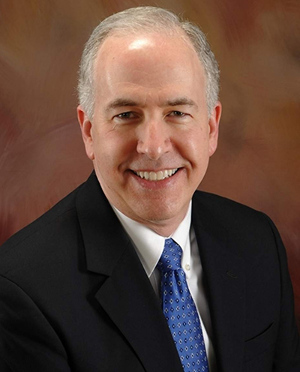Emotional intelligence key in robo world
Financial advisers are being told they’ll need to hone their ability to have deep and meaningful conversations with clients in the new world of roboadvice and artificial intelligence.
Thursday, October 18th 2018, 6:00AM

Joe Maugeri, managing director of corporate relations at CFP Board, addressed the FPSB summit in Bangkok on Wednesday.
He said work done by the Digital Advice Working Group had compared the finance sector to those that had already been significantly disrupted by technology, such as healthcare. That showed that technology would not replace humans, but could be expected to replace activities.
He said financial services firms were engaged in a race to up their game in the face of technological disruption, and to move up the value chain as roboadvice became more common.
“This is a golden age at CFP, we’re seeing firms come to us, saying they need more CFP professionals.”
AI has been predicted to be the next big disrupter but Maugeri said it was unlikely in the short term. “There are things humans can do that AI can’t. Humans are good at relationships and trust, emotional areas, upselling, troubleshooting…. AI will take some time.”
He said AI would probably be used to go after the industry’s “low-hanging fruit” at first. “If big providers need return on investment they will go after things they know well.”
Advisers, on the other hand, could add more value and deliver more advice, cementing their place in the market. “The trend is in our favour.”
Robodavice and AI solutions could be used to deal with the mundane and sophisticated parts od the advice process, generating capacity for advisers to have deeper conversations with clients.
“Advisers can spend more time finding out their clients’ goals, what they care about, changing the conversation and the narrative. Advisers need to focus on areas computers can’t manage.”
There would be growing importance for new advisers to have digital skills but also to know how to deal with clients on a personal level, dealing with their emotional responses, as well as issues such as mulitgenerational relationships within famlies. “We need to prepare advisers for a rapidly changing environment. They’re going to be dealing with a range of circumstances and emotional issues and they need to be trained for that.”
Behavioural finance would become an increasingly important part of an adviser’s skillset, he said.
| « Shanks: Consumers don't care how advisers paid | Mann on a mission to diversify financial advice » |
Special Offers
Comments from our readers
No comments yet
Sign In to add your comment
| Printable version | Email to a friend |



